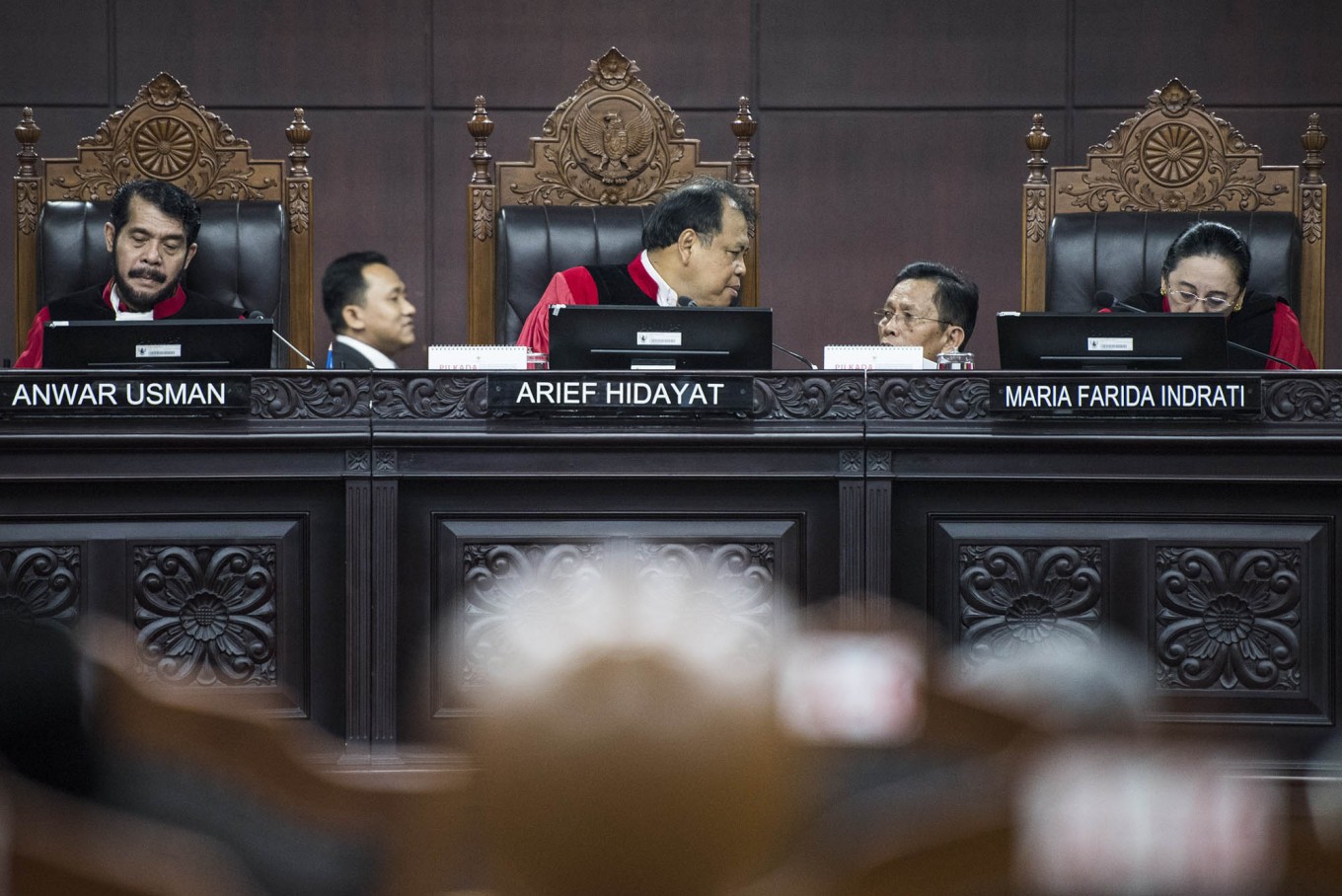Popular Reads
Top Results
Can't find what you're looking for?
View all search resultsPopular Reads
Top Results
Can't find what you're looking for?
View all search resultsConstitutional Court must speed up judicial reviews: Setara
The Constitutional Court (MK) needs to improve its performance in handling judicial review requests to curb potential misconduct, human rights watchdog Setara Institute has suggested.
Change text size
Gift Premium Articles
to Anyone
T
he Constitutional Court (MK) needs to improve its performance in handling judicial review requests to curb potential misconduct, human rights watchdog Setara Institute has suggested.
Ismail Hasani, the watchdog’s research director, said the longer it takes for the court to process a request, the greater the opportunity for collusion between plaintiffs and justices.
He cited the bribery case of former justice Patrialis Akbar as an example.
“The attempt to influence MK’s ruling [through bribery] in Patrialis’s case could happen again because the proceeding [to reach the verdict] was too long,” Ismail said on Sunday as quoted by kompas.com.
Patrialis was accused of accepting US$70,000 in bribes from businessman Basuki Hariman and his secretary Ng Fenny in connection with a judicial review request of the 2014 Farming and Animal Husbandry Law.
Read also: Constitutional Court hears HTI complaint against Perppu
Setara recorded 38 requests that took more than a year to resolve in the August 2016-2017 period, while 18 requests took around nine to 12 months.
Ismail pointed out that in some cases, Constitutional Court justices read out the ruling months after they had actually reached a conclusion in an internal meeting.
The watchdog recommended for the Constitutional Court, along with the House of Representatives and government, to set up a hearing on managing case schedules, which would also help provide legal certainty for plaintiffs. (kuk/bbs)










